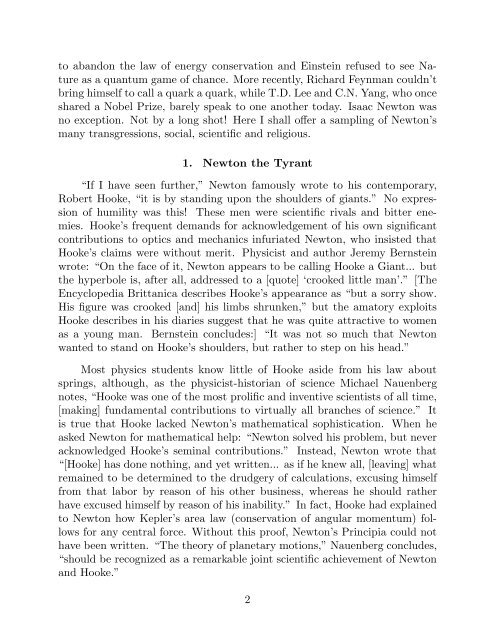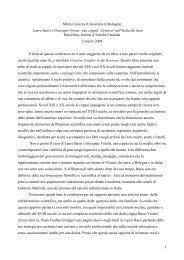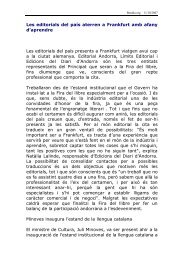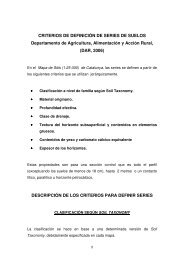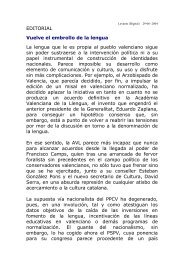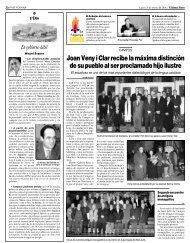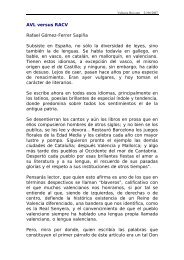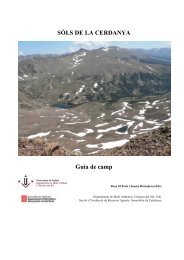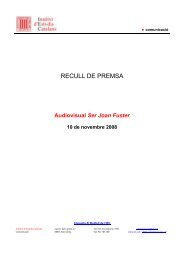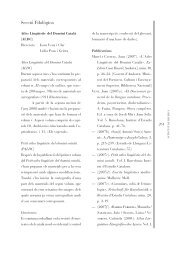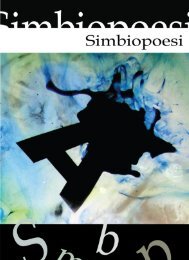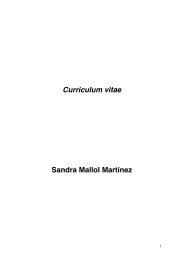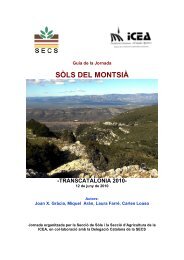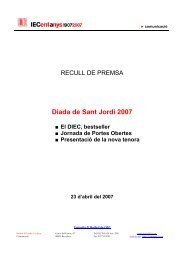The Errors & Animadversions of Honest Isaac Newton by Sheldon ...
The Errors & Animadversions of Honest Isaac Newton by Sheldon ...
The Errors & Animadversions of Honest Isaac Newton by Sheldon ...
Create successful ePaper yourself
Turn your PDF publications into a flip-book with our unique Google optimized e-Paper software.
to abandon the law <strong>of</strong> energy conservation and Einstein refused to see Natureas a quantum game <strong>of</strong> chance. More recently, Richard Feynman couldn’tbring himself to call a quark a quark, while T.D. Lee and C.N. Yang, who onceshared a Nobel Prize, barely speak to one another today. <strong>Isaac</strong> <strong>Newton</strong> wasno exception. Not <strong>by</strong> a long shot! Here I shall <strong>of</strong>fer a sampling <strong>of</strong> <strong>Newton</strong>’smany transgressions, social, scientific and religious.1. <strong>Newton</strong> the Tyrant“If I have seen further,” <strong>Newton</strong> famously wrote to his contemporary,Robert Hooke, “it is <strong>by</strong> standing upon the shoulders <strong>of</strong> giants.” No expression<strong>of</strong> humility was this! <strong>The</strong>se men were scientific rivals and bitter enemies.Hooke’s frequent demands for acknowledgement <strong>of</strong> his own significantcontributions to optics and mechanics infuriated <strong>Newton</strong>, who insisted thatHooke’s claims were without merit. Physicist and author Jeremy Bernsteinwrote: “On the face <strong>of</strong> it, <strong>Newton</strong> appears to be calling Hooke a Giant... butthe hyperbole is, after all, addressed to a [quote] ‘crooked little man’.” [<strong>The</strong>Encyclopedia Brittanica describes Hooke’s appearance as “but a sorry show.His figure was crooked [and] his limbs shrunken,” but the amatory exploitsHooke describes in his diaries suggest that he was quite attractive to womenas a young man. Bernstein concludes:] “It was not so much that <strong>Newton</strong>wanted to stand on Hooke’s shoulders, but rather to step on his head.”Most physics students know little <strong>of</strong> Hooke aside from his law aboutsprings, although, as the physicist-historian <strong>of</strong> science Michael Nauenbergnotes, “Hooke was one <strong>of</strong> the most prolific and inventive scientists <strong>of</strong> all time,[making] fundamental contributions to virtually all branches <strong>of</strong> science.” Itis true that Hooke lacked <strong>Newton</strong>’s mathematical sophistication. When heasked <strong>Newton</strong> for mathematical help: “<strong>Newton</strong> solved his problem, but neveracknowledged Hooke’s seminal contributions.” Instead, <strong>Newton</strong> wrote that“[Hooke] has done nothing, and yet written... as if he knew all, [leaving] whatremained to be determined to the drudgery <strong>of</strong> calculations, excusing himselffrom that labor <strong>by</strong> reason <strong>of</strong> his other business, whereas he should ratherhave excused himself <strong>by</strong> reason <strong>of</strong> his inability.” In fact, Hooke had explainedto <strong>Newton</strong> how Kepler’s area law (conservation <strong>of</strong> angular momentum) followsfor any central force. Without this pro<strong>of</strong>, <strong>Newton</strong>’s Principia could nothave been written. “<strong>The</strong> theory <strong>of</strong> planetary motions,” Nauenberg concludes,“should be recognized as a remarkable joint scientific achievement <strong>of</strong> <strong>Newton</strong>and Hooke.”2


